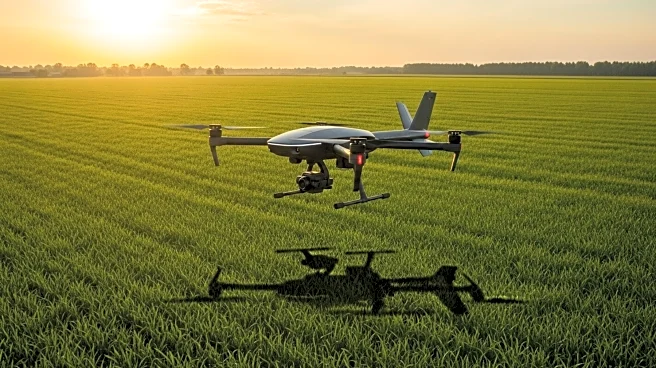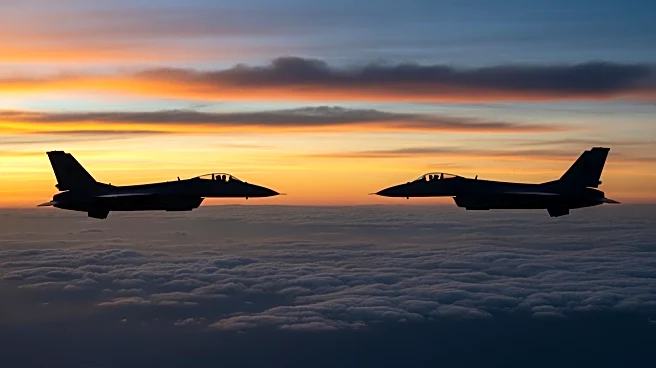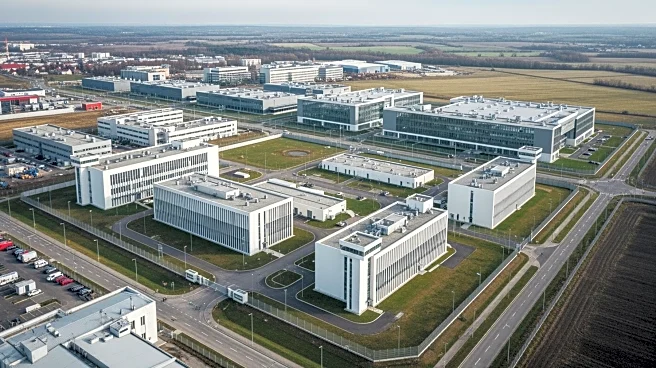What's Happening?
The Philippine Rice Research Institute (PhilRice) is promoting the use of drones in agriculture to reduce costs and increase profitability. This initiative aims to modernize farming by integrating digital and precision technologies, such as drones for seeding and herbicide spraying. PhilRice's program leader, Mark Angelo A. Abando, emphasizes the importance of transforming agriculture into a high-tech industry to attract younger generations. Despite concerns about potential job losses, PhilRice believes that modern tools will enhance productivity and sustainability in farming.
Why It's Important?
The adoption of drone technology in agriculture represents a significant shift towards modernization and efficiency. By reducing labor costs and increasing yields, drones can make farming more appealing to younger people, addressing the aging workforce issue in agriculture. This technological advancement could lead to increased competitiveness and sustainability in the agricultural sector, potentially influencing global food production and security.
What's Next?
PhilRice plans to continue developing and implementing drone technology in farming practices, focusing on long-term sustainability. The institute aims to integrate more digital tools and data-driven decision-making processes to further enhance agricultural productivity. This initiative may inspire other countries to adopt similar technologies, potentially leading to a global shift in farming practices.
Beyond the Headlines
The use of drones in agriculture raises ethical and social considerations, such as the impact on traditional farming communities and the potential for job displacement. It also highlights the need for policies that support technological integration while safeguarding the livelihoods of farmers. The move towards high-tech agriculture could redefine the cultural landscape of farming, influencing education and training programs for future generations.









